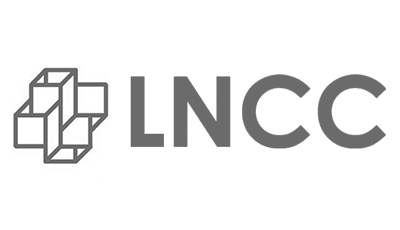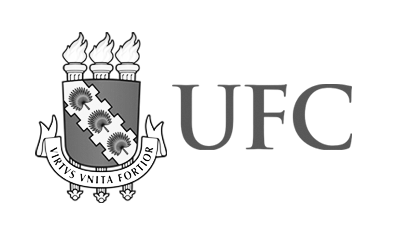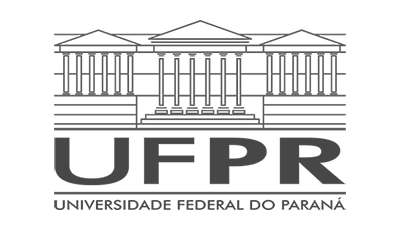Associated Laboratories
The INCT-CiD is composed of a set of Partner Institutions. The institute head office is the National Laboratory for Scientific Computing (LNCC), a research unit of the Brazilian Ministry of Science, Technology, Innovation, and Communications (MCTIC). The other partner institutions are CEFET/ RJ, IME, UFC, UFJF, UFPR, UTFPR, CISB, and DBS2, which are briefly presented below.

LNCC (INCT-CiD head office): LNCC encompasses two research groups of the institution: the laboratory of Mechanisms and ARchitectures for Teleinformatics (MARTIN) that is co-headed by Artur Ziviani and the laboratory of extreme data (DEXL - http://dexl.lncc.br), led by Fabio Porto. MARTIN presents as its main R&D activities the characterization, analysis and modeling of networks, distributed computing and software architecture. On the other hand, DEXL's main R&D activities are formal data representation, parallel and distributed processing of queries, and data analysis. In particular, both laboratories are dedicated to interdisciplinary research from its main areas of activity.

CEFET/RJ: The CEFET-RJ involvement includes the Research Group on Applied Computing (GPCA), which has data science as its research mainstream. The research involves both the development of algorithms and applications directed related to data mining, workflows, and data management. The topics currently investigated by GPCA include parallelization and execution of workflows with astronomical data management and data mining of temporal data, educational and information security access flows. For more information: http://eic.CEFET/RJ.br/gpca

IME: IME focuses on the topic of cyberdefense, covering the following computing areas: computer networks and distributed systems, high performance computing, machine learning, cryptography, intrusion and attacks detection, storage and processing of large volumes of data and information security in general. It includes in its activities researchers from various fields and has the institutional support of the Brazilian Army, through the Center for Cyber Defense - CDCiber located in Brasilia. This research field is a priority issue for national security. For more information: http://defesacibernetica.ime.eb.br/

UFC: The UFC team develops activities in areas such as database and software engineering, mainly in the following topics: automatic tuning of databases, cloud databases, linked data on the Web, and software quality. There are also activities in the area of digital signal processing and images, pattern recognition, detection and fault prognosis.

UFJF: The UFJF team acts in computer networks and distributed systems mainly in the characterization, analysis and generation of computational models for computing systems. Currently, the work of the group has a multidisciplinary character and focuses on topics such as passive and active traffic measurements; characterization and study of the Internet under the influence of large-scale events; cloud storage systems; and online social networks.

UFPR: The UFPR team encompasses two research groups of the institution. First, the Data and Information Management Group (GDAI) develops projects involving various aspects of data management. These projects are not restricted to traditional themes related to database management systems (DBMS), but also explore the management and storage of data in other ways, such as cloud and sensor networks. The integration of these data, generated and collected in a continuous manner, up to the information stored in traditional media, imposes new challenges to the area that the group investigates. Second, the Network and Distributed Systems Laboratory (LARSIS) is involved in several research areas, primarily related to fault tolerant distributed systems, computer networks and high performance computing systems.

UTFPR: The UTFPR team brings together diversified and complementary P&D activities among its researchers: computer networks, distributed systems, computational intelligence, operational research, data mining, real-time communication, system modeling, and simulation.

CISB: The Swedish-Brazilian Research and Innovation Center (CISB) is a non-profit legal entity under private law. It has been created in 2011 inspired on the concepts of triple helix and open innovation. Its main objective is to stimulate cooperation among industrial, academic, and government organizations between Sweden and Brazil working as a neutral arena for the development of relationships, partnerships, and projects that promote innovation. In the INCTCiD, CISB intends to contribute to the missions of internationalization and knowledge transfer to companies or public sectors.

